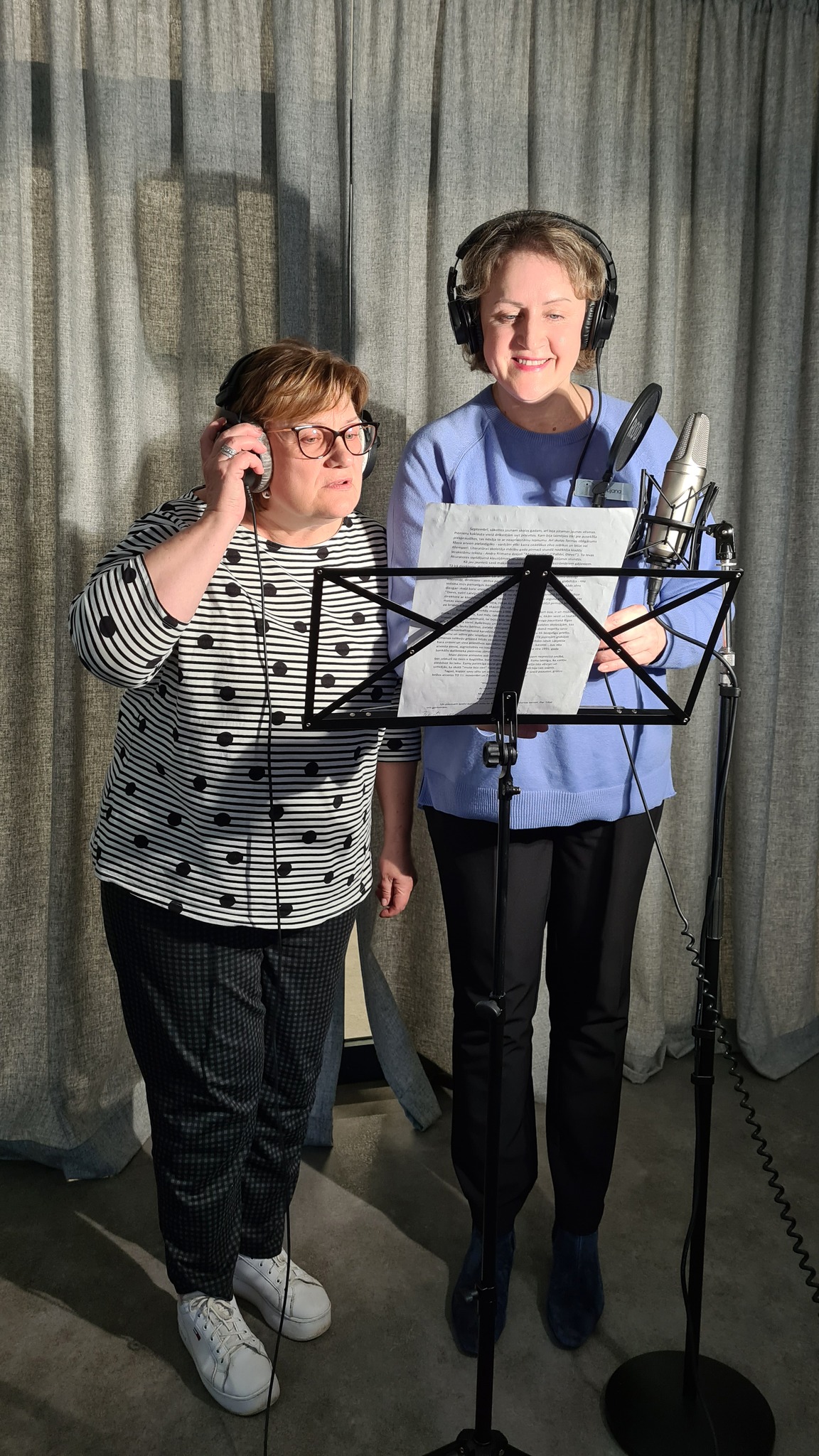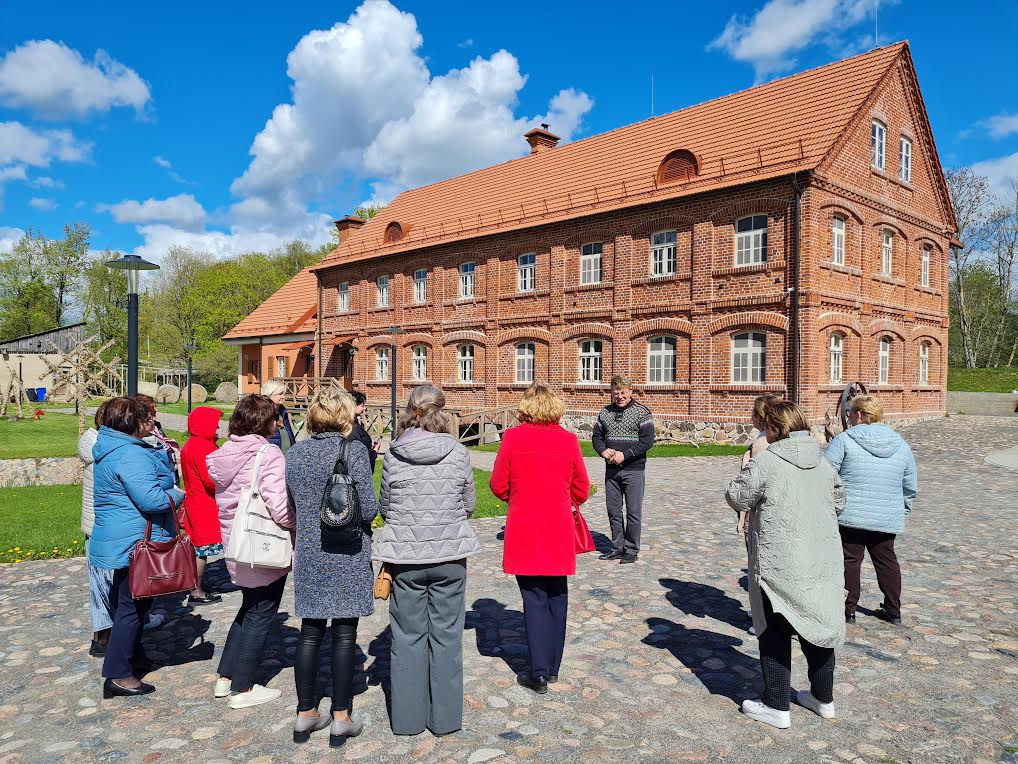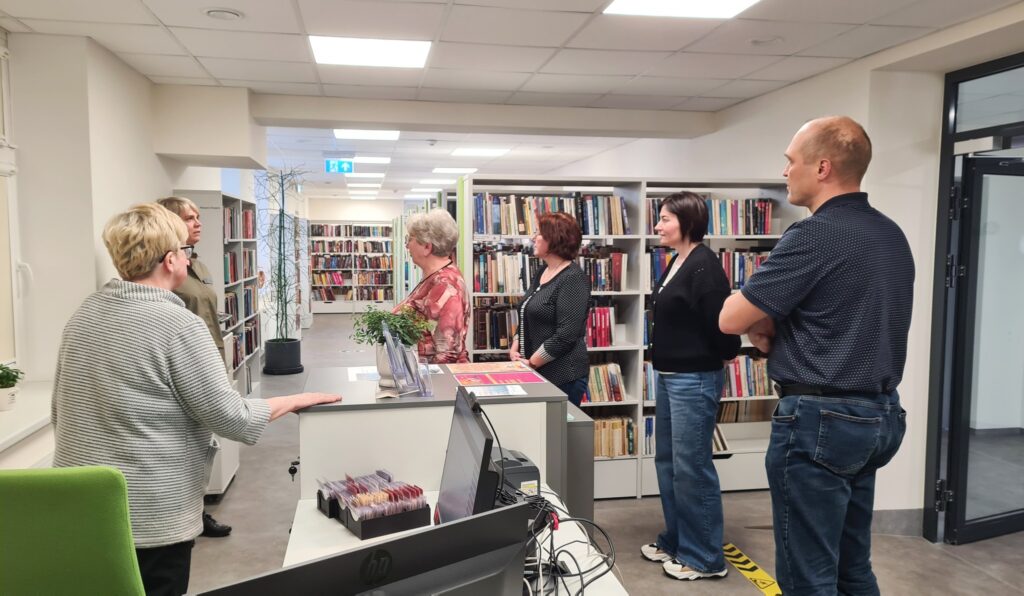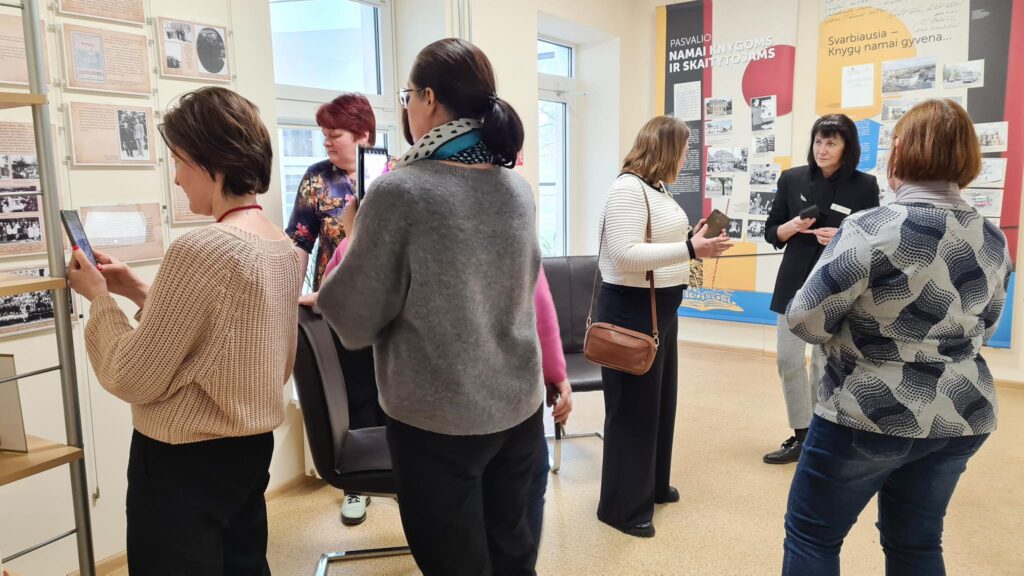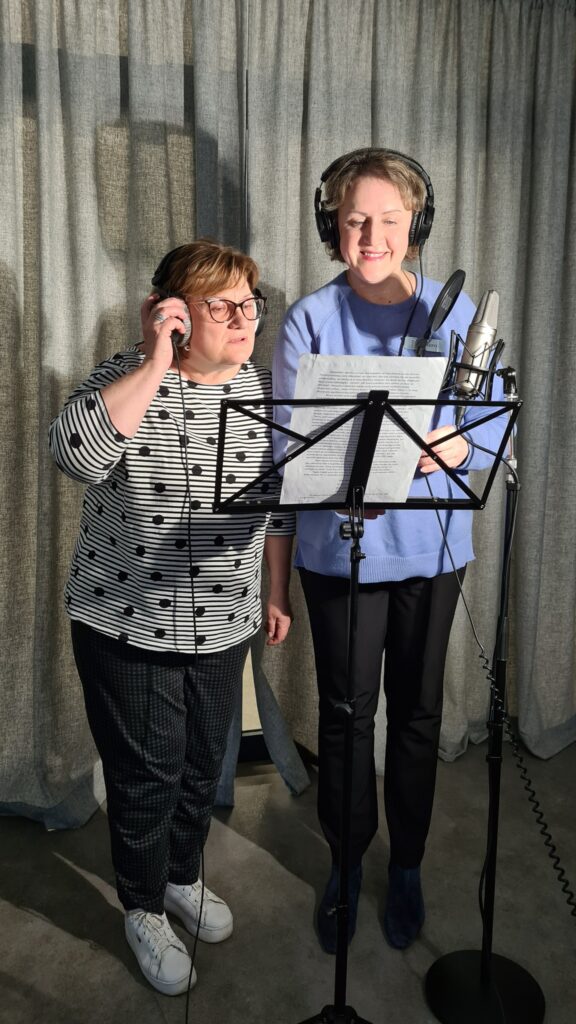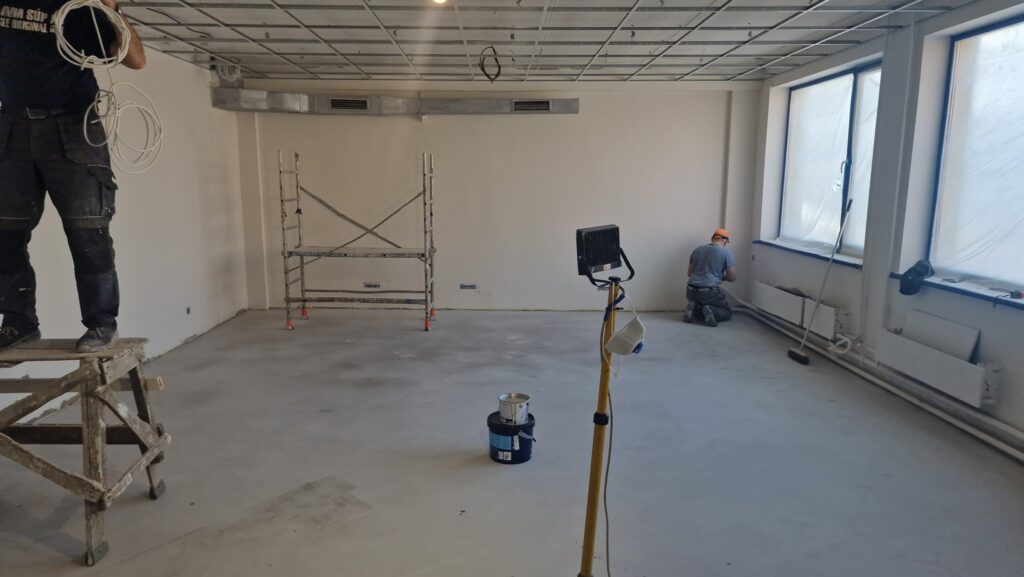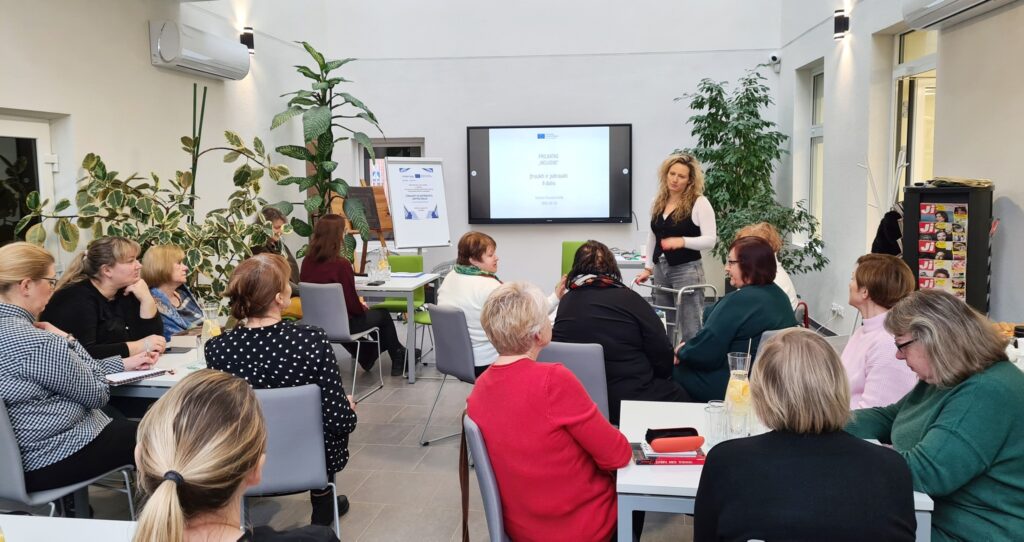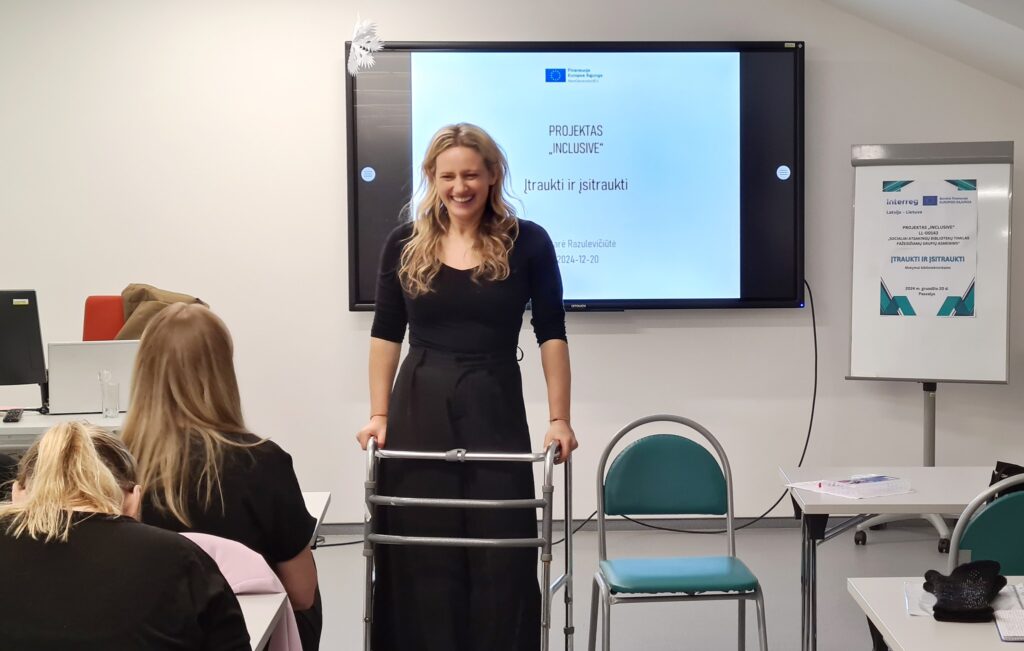During the second period of the INCLUSIVE project, the main focus was on the development of a methodology that will serve as the foundation for new services in libraries – the Sensory Reading Rooms with PIP initiative. This methodology is aimed at creating an inclusive educational environment for vulnerable social groups.
Thirty educational programs were prepared, sensory reading scenarios were created, a good practice guide was developed, and a list of over 1,000 publications for sensory reading and mental health support was compiled. In Pasvalys Library, audio materials in Lithuanian and Latvian were recorded for visitors with visual or learning impairments.
The details of the methodology development were discussed during focus group partner meetings, where representatives from all partner institutions actively participated by sharing insights, practical experiences, and ideas for adapting the content to different communities.
Work has begun on installing a sensory room at the Subate City Library, the premises were renovated.
To properly prepare librarians for working in sensory reading rooms with socially excluded groups, specialized training on working with people with disabilities was organized for librarians from Pasvalys city and district. These sessions covered communication methods, the importance of empathy, and practical strategies for creating a safe and friendly space for all visitors.
In addition, online inter-institutional cooperation training was held in Pasvalys, as foreseen by the project. The purpose of this training was to encourage intersectoral dialogue, facilitate the exchange of best practices, and strengthen the creation of social partner networks in the region, so that the sensory reading initiative becomes a sustainable and long-term solution.
International supervision sessions to enhance the competencies of library staff were also conducted, with participants from libraries in Pasvalys, Augšdaugava, and Jelgava regions. These supervisions focused on the psychological characteristics of elderly people, adults with disabilities, and those experiencing social exclusion, addressing the specifics of communication and education, as well as strategies for managing professional challenges and emotional stress.


